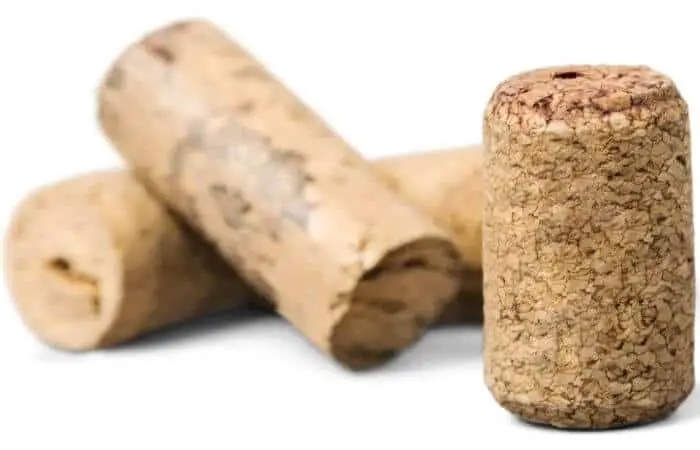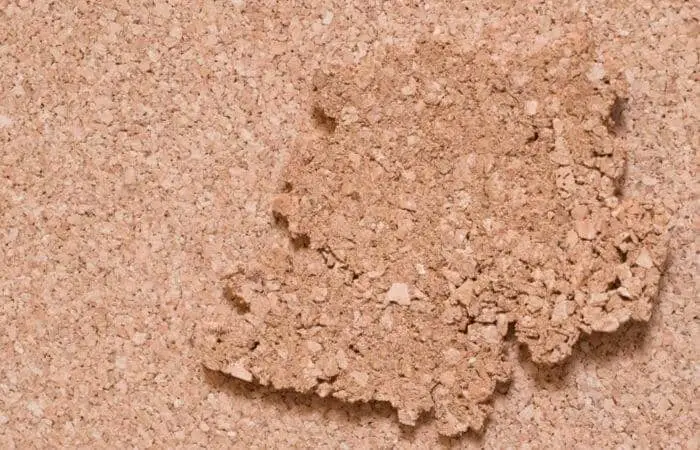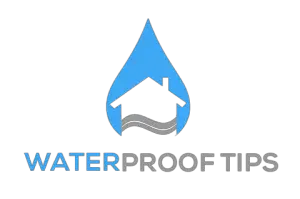Cork is one of the oldest materials used by man as an insulator. Cork was trusted to protect people against temperature and elements of weather as well as moisture and humidity. But is cork waterproof?
Unfortunately, cork is not fully waterproof and is better classified as an excellent water-resistant material.
If you want to know more about cork and how well can it hold up against moisture, keep on reading!
What is Cork?
Cork is a natural material that comes from the phellem layer of bark harvested from some types of trees, such as the bark of the cork oak tree known as “Quercus suber”.
The cork is created by collecting and drying the phellem layer, then grinding it up before they’re bonded with resin and compressed into sheets or blocks.

Since cork has several functions, it has been used by humans for thousands of years as a completely natural insulator.
Also, because cork is derived from living parts of the plants, it’s a highly replenishable and easily recurring material.
How Well Does Cork Hold Up Against Water?
As you already know, cork isn’t waterproof. This is because cork absorbs some water or liquids when it’s exposed to water for a long time.
If you leave a cubic inch of a solid piece of cork immersed in water, it’ll eventually soak up water and increase in weight.
The weight gain isn’t huge and is usually limited to about 3 to 5%. This means that cork is a pretty excellent insulator when it comes to water resistance and does a much better job than hardwood flooring and similar natural alternatives.
How Long Can Cork Last in Direct Contact with Water?
After some time in the water, you should expect the very tiny gaps in the cork to soak up the water and swell.
However, since the amount of water absorbed is so little, the dimensions of the piece of cork stopped might not be affected.
However, if you’re using cork for floor or wall insulation. The swelling might be a problem. Even high humidity conditions for a few weeks can be enough to get a sheet of cork to warm and bulge.
Most Popular Waterproof Uses of Cork
Cork is one of the handiest items on the planet and is used in a wide variety of situations. In fact, since it has decent natural insulation properties, it’s currently used as a form of heat insulation in space shuttles.

However, cork is also one of the oldest materials known to man with decent resistance to water, which is why cork has some popular waterproof uses. Let’s check them out!
Bottle Stoppers
Using cork as bottle stoppers is one of the most iconic usages to this day for all the good reasons!
Cork is theoretically impermeable to air and moisture. It has been used for centuries in the wine industry and it’s very unlikely for cork-stoppered liquids to leak out. Also, it’s chemically stable, so it doesn’t react easily with the content of the bottle.
However, this might happen on very rare occasions, where some chemically treated corks might taint the taste of the liquid in the bottle. That’s why wine bottles with a musty taste are sometimes referred to as “corky”.
Despite accounting for almost 60% of wine caps around the world, cork stoppers were declining in usage throughout the last decades.
Currently, cork stoppers are almost exclusively used for wine bottles but not used for other beverages because they don’t readily support the growth of mold and bacteria, which is a pretty critical matter for wines that are meant to be stored for decades.
Another reason for that is that they’re much more difficult to open when compared to plastic caps. That’s why they need a special tool (cork-screw) to pop them out.
Cork Flooring
Due to the cork’s insulation properties, it has also been used in the past as an option for house flooring.
This use has diminished over the last few decades due to the availability of more sustainable flooring options with better insulation abilities.
However, the use of cork flooring is also coming back as a greener or a guilt-free alternative to using hardwood that is responsible for cutting down forests.
Modern cork flooring requires special attention to the material’s lack of full protection against moisture.
That’s why the installation of cork flooring requires applying multiple layers of a premium quality sealant to create an invisible barrier against moisture on the surface.
Homeowners with cork flooring are usually advised to wipe the spills immediately to avoid floor stains and ruining the flooring.
Cork flooring should only be installed by a highly qualified professional because high humidity leaking through poorly sealed surfaces can cause the cork to warp and discolor, then eventually curl and pop out.
Also Read: Is Laminate Flooring Waterproof?
How to Waterproof Cork
One thing you should know about cork is that it’s a naturally porous material and is rarely used without being treated with sealants.
In fact, even hundreds of years ago, animal protein binders and waxes were used to seal the cork.
Today, you can waterproof cork sheets by coating them with a layer of water-insoluble polyurethane binder.
These binders adhere to the granules of cork and form a highly impermeable composite, such as Amorim.
What’s great about polyurethane binders is that they don’t leach into the ground and resists wearing off much better than older binders.
This allows the cork to withstand being submerged in water for up to 20 days without showing signs of structural deterioration.
To waterproof it., you apply a coat of the polyurethane binder and wait for it to dry before you apply the next one.
Ideally, most surfaces will require 2 to 3 coats of the binder. But, surfaces that come in contact frequently with water should have at least 5 to 6 coats for extra protection.
Final Thoughts
There you have it. A complete guide that walks you through the water-resistant properties of cork.
As you can see, cork is a pretty decent water insulator that has been used in bottle stoppers, buoyant aids, life jackets, and other floatation devices for years.
To make the most benefit from cork insulation, you’ll need to seal it with strong adhesives, such as water-insoluble polyurethane binders.
Also, the type and quality of cork depend mainly on the type of cork used because different ones vary in terms of water resistance.

